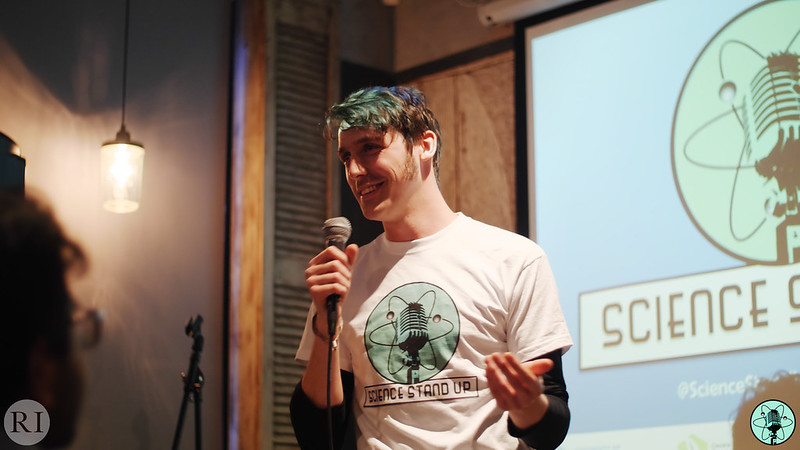Reflecting on my PhD experience, I am very happy to say that I didn’t get ‘just a PhD’. Over the 3-4 years for my doctorate, I got involved with a wide range of exciting, enriching and incredibly useful opportunities.
Perhaps one of the most significant of these was science comedy. Tired of working within the confined realms of ‘standard academic presentations’, I decided to develop an interactive and entertaining piece about my research.
After presenting this to fellow students in my doctoral training centre, I was urged on to perform at Science Showoff in Bristol. After this, I got the buzz for science comedy. With the help of the professional development team, I organised and hosted 'Science Stand Up'. This was exclusively for PhD students here, as a platform to learn stand-up comedy skills from a professional, and to use these to present their research in an entertaining and exciting way.
After running this event for two years, I was also successful in securing a grant of £3000 from the Royal Academy of Engineering for a project in developing scientific talks for street performances, which involved postgraduate students and a host of events and performances.
Both these experiences I pursued mostly for the enjoyment that they brought. It was great to connect to fellow PhD students from across campus and in a variety of disciplines, and to work together to develop entertaining and interesting talks about our research. I also learnt a lot of immensely useful skills, focused around communication (getting your point across clearly, concisely and so people will remember it!) and writing and project planning. All of it fed directly back into my PhD and helped me with academic talks, writing papers, and managing research projects for Chemical Engineering masters students. The communication skills I developed really helped out at conferences too, where it was much easier to get noticed and understood, and where I could develop some really interesting ideas with academics and create networks with those in industry.
A word of advice though, be sure to know your limits and manage your time well. Map out what you would like to do during your PhD. What skills do you want to develop? What new activities would you like to try? Think about how it may help your future career and where you want to go.
I found it incredibly rewarding doing all the extra activities during the PhD. It made me a lot more confident searching for jobs and opportunities in my final year of my doctorate, because I knew that my experiences had moulded me into a research student with more than ‘just a PhD’.
